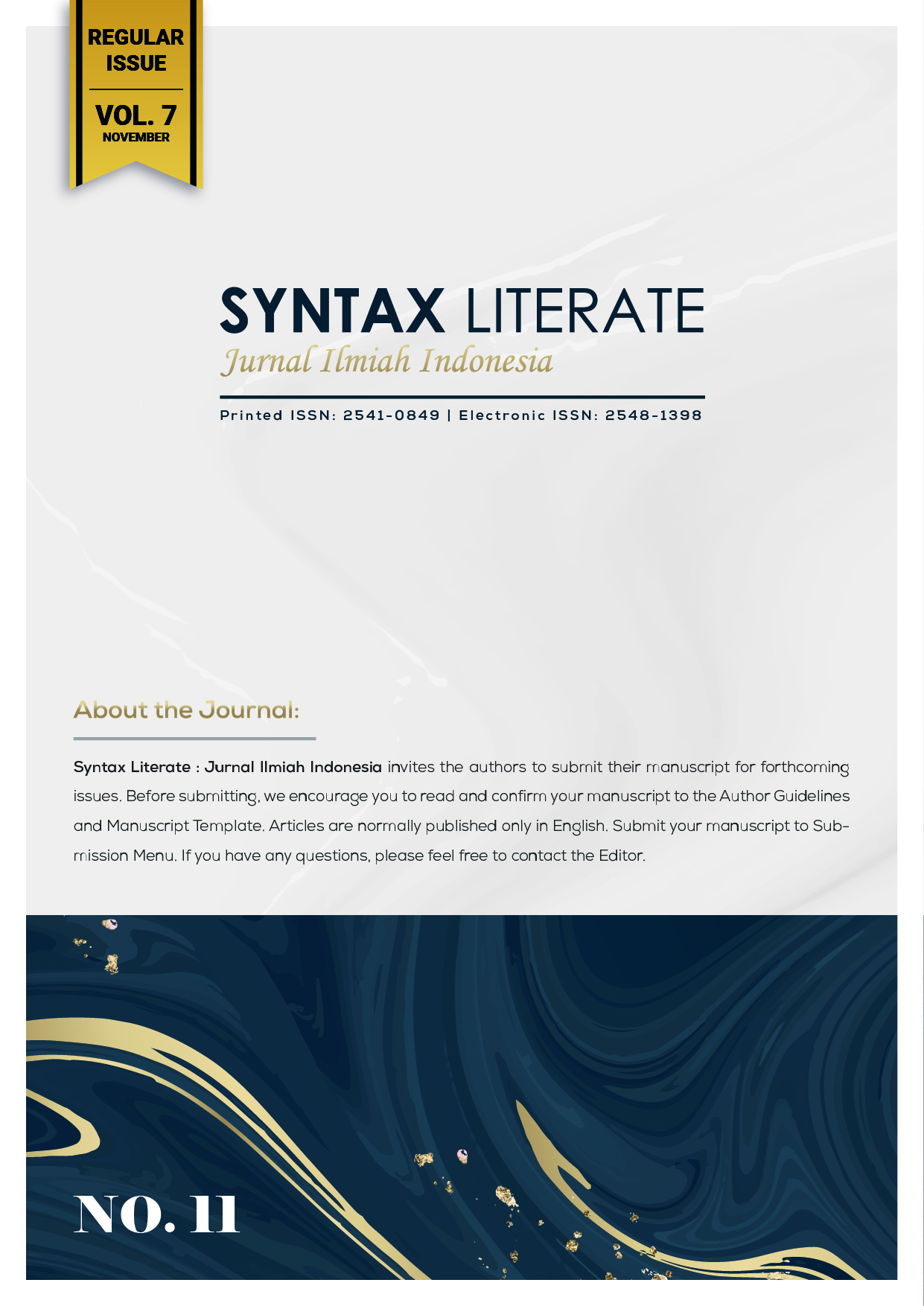Empowering Women in Rural Tourism Development at Saung Ciburial Tourism Village, Garut, Indonesia
Abstract
In this modern era, every human being has the same right to work including in the development of tourism in a destination. Likewise, women deserve an equal share and are empowered. Rural tourism is not only alternative tourism but is a vital aspect of the community’s socio-economic development. Rural tourism is also an important tool in upholding the principle of gender equality because women take a large role in employment relations in rural tourism development. The main focus of this research is to review the extent of women's empowerment in the development of rural tourism in the Saung Ciburial Tourism Village, Garut City. Using descriptive methods and qualitative approaches, data collection was carried out through observation and integrated interviews where the participants in this study were all stakeholders and women who were involved in rural tourism activities in Saung Ciburial Tourism Village. The results showed that women in the Saung Ciburial Tourism Village had been actively involved/empowered in tourism activities, starting from technical staff, lower-level management, to upper-level management where they were trusted to be administrators and even leaders of village government organizations/agencies.
Downloads
References
Alarcón, D. M., & Cole, S. (2019). No sustainability for tourism without gender equality. Journal of Sustainable Tourism.
Duarte, D. C., & Pereira, A. D. J. (2018). The role of women in rural tourism: a study in the Planaltina’s Rajadinha circuit-Federal Districts. Revista Brasileira de Pesquisa Em Turismo, 12, 81–102.
Khoo-Lattimore, C., Yang, E. C. L., & Je, J. S. (2019). Assessing gender representation in knowledge production: a critical analysis of UNWTO’s planned events. Journal of Sustainable Tourism.
Mardiatno, D., Faridah, F., Listyaningrum, N., Hastari, N. R. F., Rhosadi, I., da Costa, A. D. S., Rahmadana, A. D. W., Lisan, A. R. K., Sunarno, S., & Setiawan, M. A. (2023). A Holistic Review of Lake Rawapening Management Practices, Indonesia: Pillar-Based and Object-Based Management. Water, 15(1), 39.
Nitikasetsoontorn, S. (2014). The success factors of community-based tourism in Thailand.
Nugroho, R., & Suprapto, F. A. (2021). Badan Usaha Milik Desa Bagian 2: Pendirian BUMDes. Elex Media Komputindo.
Scheyvens, R. (1999). Ecotourism and the empowerment of local communities. Tourism Management, 20(2), 245–249.
Scheyvens, R. (2000). Promoting women’s empowerment through involvement in ecotourism: Experiences from the Third World. Journal of Sustainable Tourism, 8(3), 232–249.
Aghazamani ,Yeganeh & Hunt, Carter A. (2017). Empowerment In Tourism: A Review Of Peer-Reviewed Literature. Tourism Review International, 21, 333–346. DOI: https://doi.org/10.3727/154427217X15094520591321
Alarcón. D, Cole. S. (2019). No Sustainability For Tourism Without Gender Equality. Journal of Sustainable Tourism. https://doi.org/10.1080/09669582.2019.1588283
Banani, D.M. (2017). Analisis Konsep Desa Wisata Di Desa Sukalaksana Kota Garut. Bandung: Politeknik Negeri Bandung.
Borghans, L., B. Ter Weel, and B.A. Weinberg. 2014. “People Skills and the Labor-Market Outcomes of Underrepresented Groups.†ILR Review 67(2): 287–334
Duarte,Donária Coelho & Pereira,Ana Darc Jesus. (2018). The role of women in rural tourism: a study in the Planaltina's Rajadinha circuit - Federal Districts. Brazilian Journal Of Tourism Research. 12(3). 81-102. DOI : https://doi.org/10.7784/rbtur.v12i3.1446
Equations (2007). Women in Tourism: Realities, Dilemmas and Opportunities. Accessed March 3, 2022 at http://www.scribd.com/doc/30326203/Women-in-Tourism-Realities- Dilemmas-and-Opportunities
Galiè,A & Farnworth, C.R. (2019). Power through: A New Concept In The Empowerment Discourse. Global Food Security (21). 13-17
Goldin, C. (2014). A grand gender convergence: Its last chapter. The American Economic Review, 104(4), 1091-1119.
Islam, Asif and Mohammad Amin .(2016). Women Managers and the Gender-Based Gap in Access to Education: Evidence from Firm-Level Data in Developing Countries. Feminist Economics, 22(3), 127-153.
Lane, B. (1994). What is rural tourism? Journal of sustainable tourism, 2(7), 7-21
Movono, Apisalome & Dahles, Heidi. (2017). Female empowerment and tourism: a focus on businesses in a Fijian village. Asia Pacific Journal of Tourism Research, 2(4), 77-89. DOI : https://doi.org/10.1080/10941665.2017.1308397
Nitikasetsoontorn,Suthamma. (2015). The Success Factors of Community-Based Tourism in Thailand. NIDA Development Journal. 55 (2). 24-58.
Pastore, Francesco; Webster, Allan; Hope, Kevin (2020): Assessing the role of women in tourism related sectors in the Caribbean, GLO Discussion Paper, No. 599, Global Labor Organization (GLO), Essen
Polachek, S. W. (1985). Occupation segregation: A defense of human capital predictions. The Journal of Human Resources, 20(3), 437-440.
Polachek, S. W. (2014). Equal pay legislation and the gender wage gap. IZA World of Labor.
Stanisic, T., & Milotinovic, S. (2020). Indicators of Tourism Development in Rural Areas of The Republic of Serbia. Vrnjacka Banja. Tourism in Function of Development of The Republic of Serbia: Tourism and Rural Development (TISC 2020)
Scheyvens, R. (1999). Ecotourism and the Empowement of Local Communities. Tourism Management, 245-249.
Scheyvens, Regina.(2000). Promoting Women's Empowerment Through Involvement in Ecotourism: Experiences from the Third World. Journal of Sustainable Tourism. 8(3), 232-249, DOI: 10.1080/09669580008667360
Sofield, T. H. (2003). Empowerment for Sustainable Tourism Development. Kidlington. Oxford: Elsevier Science.
Sutono. A., Sumaryadi, Rahtomo, W., Ristanto, H., Permana, O., Ashutosh, K., & Aksan, A. (2022). Business Process Diagnosis of "BUMDES" Based on Tourism Value Chain (A Case of Petarangan Tourism Village). Archive of Business Research, 10(9), 53-64. DOI:10.14738/abr.109.13048.
UNWTO.(2019). Global Report on Women in Tourism Second edition. Madrid: UNWTO
Copyright (c) 2022 Rachmat Syam

This work is licensed under a Creative Commons Attribution-ShareAlike 4.0 International License.











